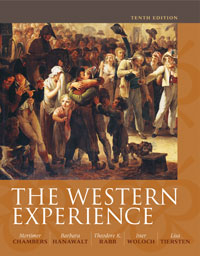1 A) to impress people with his wealth, power, and refinement. B) to insulate the court from the turmoil of the capital city. C) to serve as a final defensive bastion in case of invasion. D) to detach nobles from their lineage and lands, from which they traditionally drew their status. E) to isolate the government as a means to exercise vast personal power. 2 A) expand and control the armed forces. B) formulate and execute laws. C) collect and disburse revenue. D) enforce laws and policy in distant provinces. E) disenfranchise the traditional nobility. 3 A) decisive victories. B) greater gains than losses. C) only marginal gains, at great cost. D) great losses of territory and resources. E) an important alliance with the Holy Roman Empire. 4 A) fostering manufacturing, agriculture, and trade. B) expelling the Huguenots. C) quashing legal protests and crushing peasant rebellions. D) transforming the aristocracy into a compulsory service class. E) suppressing Jansenism. 5 A) a too-large bureaucracy and hostile neighbors. B) famine and finance. C) an absentee monarch and dwindling military forces D) too much power among the nobles and the granting of special privileges. E) special privileges and finance. 6 A) renewed competition from aristocrats (especially in the parlements). B) financial instability (thanks to exemptions from taxes enjoyed by the privileged). C) incessant warfare (thanks to Louis XV's dynastic ambitions in Spain). D) political weakness (except during the ministry of Cardinal Fleury). E) clerical resistance to the vingtième . 7 A) establishment of a Versailles-like palace at Schönbrunn. B) reliance on aristocrats to help rule nationally and locally. C) strong efforts to make imperial rule effective in Germany. D) significant expansion to the southeast at the expense of the Turks. E) royal patronage for the arts. 8 A) building a strong army, which grew to 22,000 in the 1650s. B) allying with the nobles, who got control of the peasants and through serfdom made their estates profitable. C) organizing the state to sustain the army by having officers run the treasury and local administration. D) gaining the title of King in Prussia and making Berlin into a cosmopolitan social and cultural center. E) allying with foreign powers likely to back Prussian interests. 9 A) an efficient bureaucracy, prosperous economy, and stable society were the foundations of military power. B) as conquered peoples came under different rulers, they made use of the best aspects of each government. C) larger powers were able to swallow up smaller states wholesale, and had to digest and integrate them. D) rulers vied for the distinction of ruling the most fortunate state by best serving the needs of their people. E) silencing all internal dissent made it easier to engage in foreign adventures. 10 A) increase the size of the army. B) improve the quality of the officers. C) forbid his subjects to serve in foreign armies D) fight a war. E) despise court life and dismiss numerous courtiers. 11 A) trained at all levels of the state apparatus. B) a God-fearing German Protestant. C) a composer. D) a ruthless statesman. E) a poet and philosopher. 12 A) that it was made up of socially and culturally diverse territories united only by the dynasty that ruled them. B) resistance to centralization by the traditional representative assemblies in the provinces. C) that Prussia, France, Spain, and Bavaria tried to take advantage of the succession of Maria Theresa, a woman. D) the loss of a number of provinces because Hungarian troops and British gold proved insufficient support. E) an empty treasury, an inadequately trained army, and an ineffective bureaucracy. 13 A) abolish the clergy's exemption from taxes. B) found new monasteries. C) reform the administration. D) modernize the army. E) establish military academies to produce more professional officers. 14 A) large population. B) powerful navy and overseas possessions. C) victorious army. D) economic strength. E) connections to the Church. 15 A) ignoring the Duma and concentrating instead on his bureaucracy. B) beginning the Westernization of Russia's economy and society. C) taking control of the Church and ignoring representative institutions. D) reducing the peasants nearly to the level of serfs, and forcing the nobles to serve the state. E) establishing Russia as a major presence in the Black Sea. 16 A) the consistent attacks by foreign powers with superior national power. B) the old landed aristocracy's blockage of attempts to centralize the government. C) a series of famines that wiped out agricultural yields and depleted the national treasury. D) the failure to develop a representative assembly to check the absolutist power of the monarch. E) the lack of a noble class that could lend financial and political support to the king. 17 A) exercised relatively weak leadership. B) attempted but failed to establish a standing army. C) guided England into a restrained foreign policy. D) shrunk the size of the central government considerably. E) did not challenge the Bill of Rights. 18 A) the success of the Bank of England. B) the rise of the navy. C) the expanding market for luxury goods. D) overseas expansion. E) Tory dominance in politics. 19 A) the House of Commons came to be dominated by landowners and leading townsmen. B) Britain created a bureaucratized state with a standing army and expanding navy. C) executive power came to be directed by a cabinet of ministers responsible to Parliament. D) merchant and commercial influence in foreign policy grew. E) London was becoming the financial capital of the world. 20 A) people in nature have liberty but not security. B) government is created by a contract to secure people's lives and property. C) the sovereign is a party to the contract, and may be overthrown if he breaks it. D) if the sovereign is overthrown, people revert to a state of nature. E) diplomacy was an important means to domestic power.





